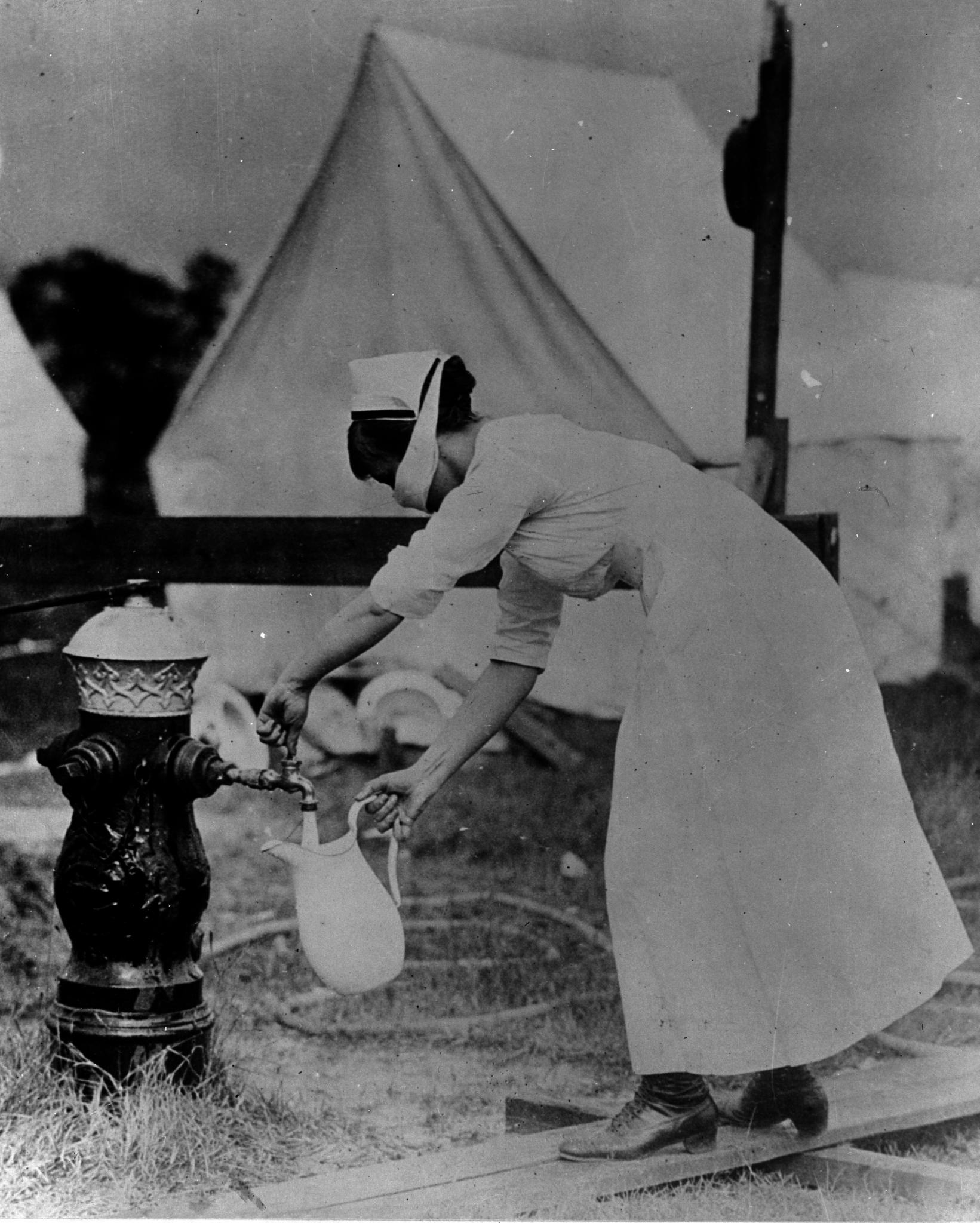
Nurse wearing a mask as protection against the Spanish Flu, Sept. 13, 1918. Photo by U.S. Government/Wiki Commons
It's October, time to get flu vaccines
It still may be hotter than you know what, but whatever the weather, October is the month to get a flu shot — so if you haven’t, there’s still time.
The flu can be serious. Slightly more than a century ago, 675,000 Americans were stricken with, and died from, the so-called Spanish flu. Worldwide, 500 million were stricken with influenza. Hospitals began caring for patients in tents, schools closed, church was called off, and spitting on the sidewalk in some cities were jail-able offenses. Funerals were banned in some cities, causing families to prop caskets in front windows so mourners could walk past to pay their respects.
Last year’s flu season was moderately severe. Eighty-thousand Americans — from infants to oldsters — died. This is slightly better than the previous year’s season, but at 21 weeks, last year’s flu season was the longest in a decade, according to the CDC.
Flu season picks up during October and November, but vaccines are available as early as August and September. For most people, flu season is little more than an annoyance, but for people in certain categories, the precaution of a flu shot is a very good idea.
Who should get a flu shot? Because our immune systems weaken with age, seniors are especially vulnerable to illness. For seniors, the flu virus can cause more than some simple sniffles and aches. The CDC estimates that more than 90% of flu-related deaths occur in adults over the age of 65. This same age group also accounts for more than 60% of flu-related hospitalizations.
What does the flu shot do? Vaccines are a simple preventative measure that can help you avoid potentially deadly illness. The vaccine isn’t perfect, but it can lower the risk of getting the flu. Most medical professionals agree that flu vaccines are still very effective at reducing deaths, ICU admissions, and overall duration of hospital stays.
One thing to note about the flu vaccine: unlike other vaccines, they are only effective for about a year. Because of this, the CDC recommends that everyone gets annual flu vaccinations. Plus, each year, the flu vaccine is updated. This helps it fight the most prevalent strain of the virus for the current year.
Alternative versions of the flu vaccine are a nasal spray vaccine and a high dose vaccine. The CDC strongly recommends that older adults get the shot and not the spray. Older adults may also want to consider a high dose vaccine, which delivers more antigen and can prompt a better immune response. This can be even more effective against infections.
Are there side effects? Yes. Some seniors may experience mild side effects to the vaccine, including redness, swelling and tenderness at the injection site. You may also experience headaches or muscle aches, though these typically don’t last long.
Medical doctors typically recommend getting your vaccine by the end of October. However since the number of cases peaks between December and February; the good news is that, even if you miss getting your flu shot by the end of October, it isn’t the end of the world — you can still get vaccinated before the peak.
Conveniently for seniors: Medicare Part B covers annual flu shots, meaning seniors can get them at no cost.
Vaccinations are available at Walgreens, CVS, your physician’s office, or at the Hays County Health Department, 401 Broadway Street, Ste. A in San Marcos.











